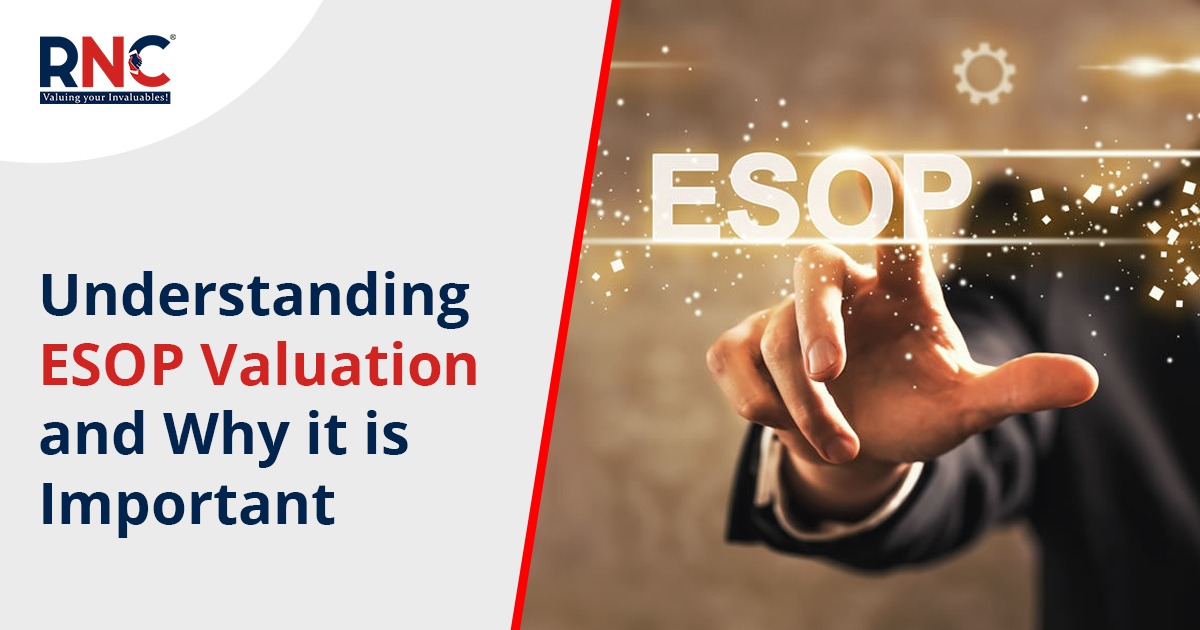
Organizations resort to many methods to hold back their employees in a time of crisis. They may be faced with employees leaving them. In an attempt to retain employees or as a general way of awarding deserving employees, organizations consider ESOP a valid option.
Valuation Methods Table
| Method | Use Case | Why It Matters |
|---|---|---|
| DCF (Discounted Cash Flow) | Startups, high-growth companies | Captures future cash flow potential |
| Fair Market Value (FMV) | Regulatory filings, taxation, buybacks | Ensures compliance with CBDT/SEBI |
| Book Value / NAV | Asset-heavy or stable businesses | Simple balance-sheet based valuation |
Simply put, ESOP or an employee stock ownership plan is stock ownership that employees can have. But it is not as simple as it sounds. It has to be regularly reevaluated for compliance.
This article takes an in-depth look at what ESOP is and its importance.
What are ESOPs in India?
ESOP or employee stock option plan is an incentive given to employees which allows them to subscribe to its shares at a fixed price for the future. It may be awarded to employees based on their performance. It is an employee stock option, which is also called a call option. Employees have the right to buy this stock, but not the obligation. This is done at a pre-decided price at a pre-decided date.
ESOP is a great way to improve the value of the shareholders in the company. When employees buy stocks, they gain a sense of ownership and belonging. They are encouraged to perform better and share the responsibility of working for the company’s welfare.
ESOP valuation is a necessary aspect of ESOP. Let us take a look.
Why is ESOP Valuation Necessary?
An ESOP valuation or a Sweat Equity valuation can only be done by a SEBI-registered (Cat-I) Merchant Banker as per the Indian Income Tax Law. Only then can the prerequisite tax payable be determined and controlled by the company’s employees and decision-makers.
ESOP valuation is critical to a company in its entirety. ESOP has to be listed as an expense by companies that offer it to their employees. It has to be part of the P&L statement.
For a startup, ESOP valuation is crucial as the valuation of the organization in its entirety. Companies that offer ESOPs must provide ESOPs as an expense in their P&L statement. The provision affects how distributable profits are calculated for factors like EPS calculations, MAT payments, dividend declarations, and senior management compensation.
Companies must conduct a fair ESOP valuation to quantify ESOP expenses, according to Ind-AS. Companies must expense appropriately in the P&L statement. The compensation expenses reduce the company’s EPS. Employees who pay too much tax may lose sight of the ESOP’s goals and benefits.
The compensation expenses reduce the startup’s EPS. On the other hand, employees paying excess tax may fade out the ESOP scheme’s purpose and value. So, startups must plan ESOPs carefully and have them evaluated regularly to ensure the ESOPs serve their purpose and prove mutually beneficial. To make sure ESOPs serve their intended purpose and prove mutually beneficial, startups must carefully plan them and have them evaluated regularly.
Shareholders can get minority stakes via ESOPs. Minority evaluation methods have to be employed to evaluate ESOP. The appropriate discounts have to be applied, and the basis of observation, experience-based evidence, and case-related facts have to be furnished when using particular control methodologies as part of minority valuation methods.
ESOP Valuation with Valuation India
Now that we know what ESOP valuation is and its importance, you need the assistance of an expert valuation firm to implement a successful ESOP strategy. You will find many valuation firms when you search for business valuation services near me. However, you should be careful while choosing a valuation firm as a lot depends on their expertise and whether their approach suits your needs. When you work with a reputed firm like RNC, you have the peace of mind of knowing your ESOP valuation will be done appropriately and profitably. At RNC, we have decades of experience and a team of business valuation experts trusted by some of the world’s largest organizations. Get in touch with us to know how we can help with our ESOP valuation services.
“📊 Planning to issue ESOPs in 2025? RNC provides SEBI & CBDT-compliant ESOP valuation reports trusted by India’s top startups and listed companies.
Book a consultation with RNC experts today.
FAQs
1. Why is ESOP valuation mandatory in India?
It ensures compliance with FEMA, Companies Act, and SEBI while giving employees transparency on fair value.
2. Which methods are used for ESOP valuation?
Black-Scholes, Intrinsic Value, or other option-pricing models depending on the scheme.
3. Who can issue ESOP valuation reports?
Only IBBI Registered Valuers or SEBI-approved professionals.

About the author:
Sahil Narula
Sahil Narula is the Managing Partner at RNC Valuecon LLP and a Registered Valuer with IBBI. He brings over a decade of experience in Valuation Services, Corporate Finance, and Advisory, having led numerous complex assignments under the Insolvency & Bankruptcy Code, 2016, Mergers & Acquisitions, Insurance, and Financial Reporting.
He is a regular speaker at national forums (ASSOCHAM, CII, ICAI, IBBI, Legal Era) and currently serves as Co-Chairman of ASSOCHAM’s National Council on Insolvency & Valuations and a member of CII’s Task Force on Insolvency & Bankruptcy.
🤝Connect with Sahil on LinkedIn.
